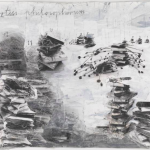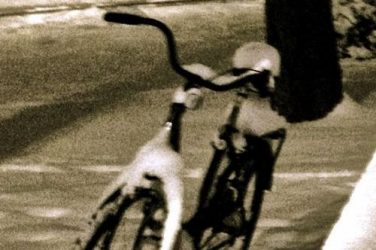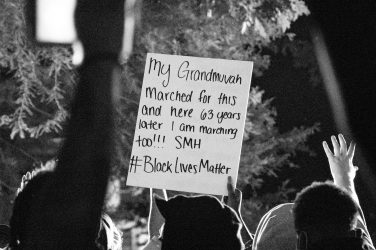Chapter 2 of ‘Love in Iran – a Pharmakon’ (read chapter 1) will make a baroque attempt to lift our existential veil by skin(ny) dipping directly into the early protest-movements of 2017/2018, by listening to a wise man in Isfahan and by thinking alongside a woman whose indomitable longing for recognition left her no choice but to escape the country. ‘When your soul and mine/ have left our bodies and we are buried (…),/ a Potter may one day mold/ the dust of both of us/ into the same clay.’ – Omar Khayyám
After the machinations in Teheran and the first shot of fear, life seemed to thirst for more. It is as if a subconscious force led me to Isfahan, were adrenaline chiseled into my face not a grin, but a manic, jokeresque smile; the throat dryer, the pupils wider and a tension that didn’t leave my chest for days.

A gross miscalculation, a presumed shortcut to the old Armenian quarter, an open road, four lanes wide with a sparse strip of land in the middle, houses like fences on both sides, straight like the line from life to death. The policeman, ignoramus like me about what was about to unfold, guided me onto the scene. A mere five minutes go into the ether and I look to my left to what leaves me in utter shock. I stare visibly shaken at a thundercloud of policemen hitting to shreds an anonymous body, a scene like gang violences’ gang banging, flickering surrealist shadows on a wall.
I quickly looked around to check if this was merely an aneurysm in the body of normalcy that encapsulated the street. ‘Shit!, Shit!, Shit!’ and with a lightning bolt of terror, the open plain was lit alight and incinerated normality; contingent dispersal, deep seated throated screams, chaos, a chaos that earned its real name, unraveled. The street converted into a Carrera lane of madness, you are set on it, a power unbeknownst to you forces you forward. The Persian veil dropped into the ground, this now became everywhere, an everywhere of terror, where humanoids are cornered, slashed, beaten and humiliated, powerless but through the power of their fear-induced instincts.
One instinct announced itself, the blackening of the conscious mind, fear, this unconscious watchman galloped the animal, me. A heart-wrenching silence unfolded as when a shout of anger in a small room leaves the atmosphere in the spell of a vacuumous rage, tingling on the baritone of violence, but this vacuumous rage became the only source of breathing. Every burning breath, taken between flickers of consciousness. The edges of the road were full of police and militia, pushing forward. We rushed to the centre of the lane, nature strives to nature, but behind me screams appeared, screams that outran me. One iron horse flew over the central strip, its mission violent, it made me run for my life as 2 Basij (‘The Organization for Mobilization of the Oppressed’…they sure mobilize) on a motorbike were hurling their clubs at me while others were less fortunate and got beaten to shreds by a multitude of policemen and irregular militia that was flooding the streets on their Japanese iron horses.
Fortunately the Basij who were hitting me with their clubs were guest friendly enough to leave me be when I shouted ‘Man az almani’ and they discovered that I was a foreigner. I joined the others as fast as I could, suppressing filming, suppressing any superfluous luxury of thought and I ran on the top of my lungs for minutes. At the end of the road I turned to the right and ran into the next corner that opened into a lively plaza. I encountered a Truman-showesque scenery, a theatrical nothingness, a plastic normalcy that re-enveloped the world; the Persian veil was intact. As if nothing happened I went over to the next shop, ‘a coke and ice cream please’, to choke the fire.
A little over nine years ago, during the election protests, quotes from an infamous poet, who died before the turn of the century, were recited:
“If you look for me, / come soft and quietly, lest you crack the glass heart / that cups my loneliness.” – Sohrab Sephry
Gulistan – the pebble in the garden of roses
More than in any other nation on the planet, the size of the palace and its surrounding garden constitutes an inverse relationship to the de facto power of its parts and it is thus not only poetically true to speak of Iran as Gulistan ‘Land of the rose gardens’.

‘How can the word ‘rose’ capture what human imagination throughout its centi-millennia has tried to grasp in every language, with their overflowing attachment? It can’t. Equally my words are but a hoarfrost that embraces the surface of imagination that humans name life. And my words may do great injustice. This text, a bottled Gulistan, spray and smell.’
In the midst of Isfahanian splendor, a meta composition of artistic planning and architectural craftsmanship, in its gravity akin the temple structure of Amritsar in Punjab, but thoroughly Islamo-Persian, the promise of an Iranian lunch lured me into a small resto.

A broad, green & beige tweed jacket, with a grey-haired head, was swinging around its aged axis. Strong eyes taking me for granted in the next hour. My gaze wandered in quick exploration. A face can show life and intellect, his showed everything and wit. The old man invited me for lunch. Of course I was skeptical, our hermetic culture of the north so well described and lived as example by Thomas Mann, an intermezzo in military discipline, a post-Calvinistic stance towards life ‘ …et labora’, a price of stoicism and the natural propensity to rejoicing in being together among oneself makes me seem autistic among a people who put ‘guest’ in ‘inter-subjective encounters’.

After testing his ways our talk spiraled quickly into religion and politics, a well-prepared counter posture to those spiritual authorities meandering the cities’ little streets, just a few meters from our table and accompanied ever so often by that spiritual police that policed any epiphanies of doubt. ‘While a man says not a word his fault and virtue are concealed. Think not that every desert is empty. Possibly it may contain a sleeping tiger.‘ – Saadi Shirazi

He informed me of the fact, that this little grave of the Shahanshah – King of Kings – Cyrus the Great, situated close to awe inspiring Persepolis had become over the years a more and more important place of pilgrimage for those that wanted to dig through the latest hegemonic sediment of Persian culture into a deeper layer that survived the onslaught of the Arab-Persian Wars by way of reverse Taqiyya (denial of belief) and reconnect to it. The Arabo-Islamic narrative of the ‘Jahiliyyah’ – the period of ignorance – that preceded the advent of Islam might have had its authentic proponents in Arabia (still false), but to transmit this onto the land of the nobles (Iranians) seemed preposterous.

And akin to the yearly processions to Cyrus’s tomb, during Nowruz or Iranian New Year (another pre-Islamic tradition) when Gulistan is blossoming in ancient pride, the naming – as in nomen est omen – of the people has seen a new trend as ‘Kurosh’ (Cyrus), ‘Dariush’ and ‘Shirin’ are challenging the preponderance of Arabic names in Iran. It was towards the end that his confessions became more poignant. And in this game of heretic confessions and trust I needed to show my bare neck before him and prostrate my heresies in front of him. I had to tell a truth, such a truth that even if it was later to be revealed to be a tactical lie in the face of prosecution could not have saved me from punishment. We chained our truths together as captives against the ‘other’ of ideas and these chains were our bridge.
He leaned over not to be overheard by anyone else, as anyone else was already trying to decipher what this Anglophone conversation might be about (nothing good was to be presumed) and he professed to me in all secrecy to be a Zoroastrian convert, knowing that I had no business in this.

That confession struck me in particular as it was ‘death knowledge’, not parrhesia, but knowledge that under the right (or wrong) circumstances could lead to death; and I was secretly rejoicing to have received this as it was bringing me back to the moment of witnessing the recitation of the Zoroastrian creed, the Avesta, in ancient Avestan, by a woman working at a reception in Yazd, one of the few cities in which the inextinguishable flame of the Zoroastrian creed is still visible and dancing.
The Avestan term for faith is ‘Armaiti’ and does also mean love, the profession of love is a profession of faith and vice versa. Other than in the Abrahamic traditions, this ancient creed exemplifies a more pure balance of a loving faith in the anthropomorphized human potential they call Ahura Mazda. A divinity that does not itself engage in the chiefly human tendencies for vengeance and jealousy, the tendencies that are being situated in the twilight zone of human morality, but maintain unambiguously the separation between good and evil.

The last meaningful exchange was about the love for his grandson and how because of it he was unable to give him a straightforward answer on a theological question that had been raised in school concerning the veracity of the story of the hiding of one of the imams in the Twelver Shia creed and he told me earnestly: ‘If I tell him the truth of what I think, he will tell it in class and the police takes me in, but if I lie to him…I can’t lie to him…so I told him…‘ (…more of it later).
The most subversive elements in society are the intimate circles that constitute a secretive society in which the most important question to proof your character is not: ‘What do you believe?‘, but: ‘What do you doubt?‘ A sorority of clandestine consciousnesses. Doubt, this ever reopening rupture, is the true wound of enlightenment and he was presenting this to me with the pride of a long life lived as a doctor under changing regimes. He soon informed me tacitly that we had talked of things that should at last alert us of the urgency to leave this place and say farewell.
“Let’s weigh the gravity of existence in a lifted pebble.” – Sohrab Spehry
‘For the black mole on her cheek, I would give the cities of Samarkand and Bukhara.’ – Hafez

The poem – ‘The bravery at Bam’
A shattering voice,
Broken by impeding stones,
A dark veil of shadow in the forgotten home.
A woman, 24, lived, loved, studied in New Zealand.
My guest-friend who whilst being my host in these days of the Rubaiyat, shed the carcass of guest to me and introduced me with a shattering voice to the dark veil of the shadow in her long-forgotten home with a voice at the point of becoming hoarse that had been silenced, silenced by those impeding stones of her tradition, those invisible hands that attempted to put her and her independent-mindedness down and that felt righteous to mute the clamor for the dreams that had at last been taken. Tradition, ideas from the netherworld of the past, a past she never belonged to and whose ideas were borne out of minds who could never have borne the very thoughts that came into being in this unique manifestation of this world.
Houris who consume the sun,
The iris’ mirror image contains no light,
A summer everlasting but few warmth to keep.
A woman, 26, veiled, married, teacher, lived in Bam.
A marriage of prestige and convenience, she got married to a doctor. A urologist, beknownst to all the dicks of Bam (pronounced Bum). Knowing the dicks of the important people up close means knowing the true Achilles’ heel of the phallic ousia in patriarchy, yes of virility itself and that is a powerful and precious sword to wield. Of all the dicks, this was a powerful one and she might have wielded that power at least by association. Ugly but nice, so it seemed, not like the others. He even invites you to Date-Vodka and sheep-brain-after-Date-Vodka-Hangover. Ok guy. Not a bad match. Travels to Europe, a good house, millionaire neighbors, her own car, an attempt at moderating existence – but the wound was still bleeding.
A life of rules commanded by invisible hands,
Red lips breathe the light of autonomy one at a time,
The veil is heavy but touches no hair.
A woman, 26, veiled, married, teacher, lived in Bam, got a dog she loved.
The little ivory fluffy something she got them was more respite, more proximity, more laughter and caring than her marriage and she loved to scare the neighbors and she loved that she scared the neighbors. The three of us caninohumanoids made music in abandoned opera houses and picnicked in the desert and it was the thirst of a desert flower that reached with roots of questions into creeks of answers and she wanted to show me her pupils in the all-girl English language school and the first class was still alien and not safe, but the second class was her little family, full of desert flowers and houris who consumed her sun.
We talked, we laughed, we blushed, through all the ‘No Noes’ of the Iranian Penal Code. After everyone could ask anything and I could answer a-nearly-thing, a girl that had kept her silence, apparently skeptical of our sorority, spoke up. She asked me with shadowing eyes, what my religion was. And upon suppressing a sardonic smile from quickly appearing on my face, being a Welterweight in this question, I held my thoughts for a moment and let the old Iranian man from the resto in Isfahan speak through me: ‘You will know.’ and I smiled his smile. Her gaze was granite, it did not wither. ‘With the seeds of doubt planted, flowers grow faster than human beings.’
Friends, transparent keepers of silent oaths,
Heavy smiles, defyers of evil eyes,
A voice, many a laughter, that will not yield.
A woman, 26, veiled, married, teacher, lived in Bam.
For the entirety of my stay, she slept on the carpet in front of her matrimony bed. The wheel of fate kept spinning for her. You human, who has human eyes, will understand. One night she got to pluck a flower like no other, not any flower, but a rose whose color was deep, whose weight was not felt and whose scent invigorated and reminded her of those existential impressions in which for a long second the absolute of the human experience breaks into our lives and crushes the stale repetitiveness of a life merely endured. You human, who has human eyes, will understand. And when she got home that night, she lost it with all that was there, she lost it with the force of the hands that were partaking in the maintenance of the moderated existence and those hands hurt her for days after and the floor of her forgotten home was plastered with the icicles of despair of that shattered world; and for the days I inhabited this broken home, I may have become a window to another home. But above all there were her few but elect friends, beautiful and dignified, smart, agile, knowledge thirsty, these mobile temporary exiles that were waiting for us every morning for breakfast watering, being little desert flowers themselves.
A voice, of many lives, that will not bend.
A woman, 27, loves, lives in exile.

Two weeks, after I left with a heavy heart this magnificent being, she decided to put everything on one card, forsake everything she had, never to look back, left her family and the country, left every precious and banal thing she owned and fled to her cousin, fled to a city where nobody knew her, fled further and made her way to another country. In foreign lands where she resides to this day, without past and future, living another life, unveiled, out of reach of the invisible hands, being herself to the extent possible, her black hair priding itself in the sun, her red lips provocatively breathing the fumes of autonomy one at a time, side by side with a rose the weight of a pebble.
As Borges says: ‘among the ten thousand definitions of the Chinese language, there might be only twelve universal patterns. And they are not merely confined to Chinese, they are expressed ad infinitum in infinitives around the whole world‘, thus justifying a common human idea of the world and its shared onto-phenomenology.
This thrust into exile to be home again, therefore, is merely a later manifestation in the chain of ideas that humans have always carried within themselves. From the idea of a Stone Age fire, of warmth, of community and mission and a million words in nearly all the languages of the world in-between, to a feeling so personal that you could not keep it within yourself alone, and it is such that the love of humans is more original than any law or culture or family or god.
And thus we may dare to say once and for all:
Love
Is the Big Bang
Of the Human Being
Cover Photo: Persian dreams | Photo courtesy of Hendrik Steinort










